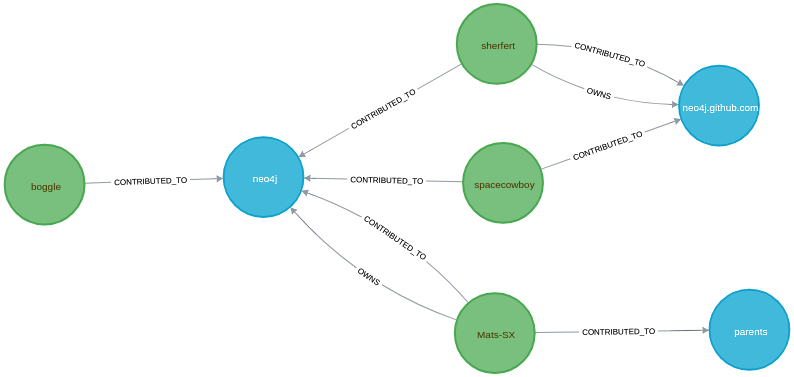One possible solution is to trust your users. Information about their behavior is also valuable.
Consider the pattern in the following diagram:

The user boggle contributed to the repository neo4j. Three more users contributed to it, and also contributed to the repositories parents and neo4j.github.com. Maybe boggle would be interested in contributing to one of those repositories:
MATCH (user:User {login: "boggle"})-[:CONTRIBUTED_TO]->(common_repository:Repository)<-[:CONTRIBUTED_TO]-(other_user:User)-[:CONTRIBUTED_TO]->(recommendation:Repository)
WHERE user <> other_user
RETURN recommendation
We can even group together this method and the preceding one, by selecting only repositories using a language the user knows and with at least one common contributor:
MATCH (user:User {login: "boggle"})-[:CONTRIBUTED_TO]->(common_repository:Repository)<-[:CONTRIBUTED_TO]-(other_user:User)-[:CONTRIBUTED_TO...































































